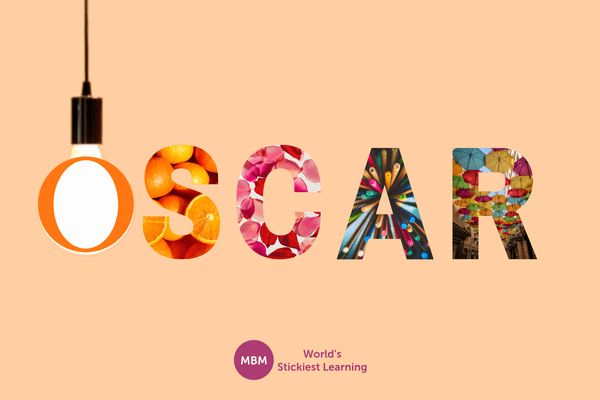COACHING SKILLS FAQ’s
Below, is a list of all of the coaching skills definitions you need to be a great coach. Each question contains a keyword and its definition, to get you started on the basics of the topic and the frequently asked questions. Furthermore, you will also find helpful coaching tips and explanations mentioned across our website:
With every session, the coach and coachee identify actionable steps needed for the coachee to make advancements towards his or her goal. In particular, the coach holds the coachee responsible for their progress by asking them how they will respond to situations and how the coach can track these changes.
The act of listening and addressing important values, feelings, or opinions. Usually, a good coach focuses on providing powerful acknowledgements to their coachee or client by addressing awareness, actions, or achievements.
Articulating a client’s strengths and weaknesses, allows a coach to influence and create realistic goals for their coachee properly.
Generating theories, solutions, ideas, and alternatives to the issues on hand. Often, it is a creative exercise that explores all possibilities, including ones that may be impractical or outrageous from both coach or coachee.
The ability to swiftly and succinctly get to the point rather than providing long-winded narratives or descriptions.
A process allowing both coach and client to identify their starting point, what their goals are, and where they are in achieving those goals. In particular, it allows participants to measure milestones and adapt to conditions to help further their goals.
Exploring limits and shaking up predetermined assessments of an individual. Normally, a coach has to help their coachee identify and solve challenges that present themselves on the individual’s journey toward his/her goals.
Believing in the skills of an individual or team. In particular, a coach stands up for their coaches despite their hesitations and self-doubt. Usually, this encourages coachees to believe they can surpass their limits and provides motivation.
Of course, open communication is of paramount importance for a successful coach-coachee relationship. In particular, reducing uncertainty and focusing on understanding each other more, creates an easier path to a coachee’s goals. Thus whenever a coachee is ambiguous, or vague about his/her goals, a good coach will question and reframe ideas on hand. As a result, this allows them to articulate and truly clarify what is going on properly.
Unnecessary items that fill and become a mess in the physical, mental, and emotional environment of a person. Usually, the presence of clutter increases stress levels, drains energy, and hinders focus when kept unchecked.
A mental process used to acquire, process, and understand knowledge. In particular, cognition includes listening, problem-solving processes, decision making, reasoning, memory, and judgment.
A person providing coaching. Usually, the coach’s main goal is to help a manager, a potential leader, or members of his team set goals, find motivation, and lead them to improvement.
An individual or group of individuals receiving guidance from a coach to further a goal, identify and solve problems, and, also, challenge them to improve.
The art of assisting an individual to reach their maximum potential. In particular, a coach guides the ‘coachee’ in overcoming barriers using their communication skills. Also, they help them to think outside of their comfort zone. As a result, the coachee is encouraged to come up with new ideas and make sound decisions on their own.
A set of metrics that an employer uses to define expectations from employees with various roles. In particular, these frameworks are used for coaching and development sessions. Furthermore, they help measure performance management, and as a tool for recruitment.
Questions that demonstrate the listener’s understanding of the speaker. In particular, these questions paraphrase to confirm what the listener has picked up from the topic discussed.
When the varying opinions, negotiations, and ideals of individuals collide. Usually, resulting in disagreements.
A thought leader or expert in an industry who can provide advice, training, or insights in their field of expertise. In particular, a consultant provides solutions and experiences while a coach teaches a coachee to learn the solutions and acquire the experience.
Drivers are internal pressures that influence individuals to act in a certain way.
A coach summarises and repeats, highlighting what the coachee said. Usually, this lets them know that the coach is listening. Also, it acts as a way to clarify that both parties have understood the message. Furthermore, it also improves rapport between coach and coachee, helping the later freely share experiences, doubts, or other questions that can help both parties define goals.
A specific style of coaching provided, specifically, to managers and potential leaders. In particular, it focuses on developing leadership and people skills that will help participants manage their team (or future team) better.
An assessment of a coachee. Usually, the coach evaluates the participant to tell which areas need extra work, and how to improve already strong skills. Meanwhile, re-evaluation allows the coach to monitor achievements are areas needing improvements.
Information that is given to a coachee evaluating his or her performance or work processes. Usually, a ratio of 50/50 positive and negative feedback ideal to help encourage developmental feedback without a coachee losing motivation.
In short, creating realistic SMART goals that are specific, measurable, attainable, relevant, and time-bound in relation to the set deadline.
GROW is a famous coaching model developed by Sir John Whitmore, Graham Alexander, and Alan Fine in the 1980s. In particular, the coaching model suggests there are four stages of coaching. These stages include goal, reality, options, and will. The coach encourages their coaches to check and assess themselves and additionally will use mind maps to explore all options.
Repetitive behaviour that runs the more energy-efficient parts of the human brain. Usually, to create habits, an individual must learn a new skill or behaviour. In particular, this allows the brain to create mental ‘maps’ or connections to make the task easier. Until one day, it becomes easier and routine. The brain will then be able to focus on other avenues.
In the late 1940s, Donald Hebb developed a theory that when humans learn new things, the brain starts to change. In particular, the neuron cells alter to fit the new processes. Consequently, the more focus an individual gives to a certain task or skill, the more in-depth the analysis and connections it creates in the brain.
A tool that performs a psychometric assessment to help identify the thought preferences of an individual. Usually, a coach can use this information to help set up the coaching process. Furthermore, it allows them to better meet their needs by considering thought preferences.
When a coach deems it necessary, a coach may interrupt the coachee to help steer him or her back on track. In fact, the goal is not to take over but to gently nudge the coachee back when they are losing focus, offering to listen to suggestions or solutions from the coachee.
Utilising that ‘gut feeling’ or what instincts dictate to help with decision making. The process is not rational but is quite important as it involves taking risks and trusting yourself.
Continuous, long-term learning. It is an ongoing process, continuously taking in new material, understanding, and asks the learner to remain ever-present and curious about the world around them.
A specific way an individual prefers to learn. By identifying an individual’s learning style, they can unlock better learning processes. Moreover, individual learning styles are a key part of the Sticky Learning® method. It helps commit new learnings and skills to memory.
Similar to the functions of a coach, a mentor is a person who aims to support an individual to help him or her to achieve goals and overcome struggles. A mentor is usually an expert in the same field the mentee is pursuing.
Like coaching, the goal of mentorship is for the mentor to help his or her apprentice or ‘mentee’. The difference with coaching is the mentor provides advice and support. A mentor is, consequently, usually an experienced professional in the same field as the mentee.
An outstanding achievement or step that marks successes in an individual’s journey to his/her desired goal. Milestones help define progress and encourage participants to continue working towards their goal.
Becoming aware of how one’s existence and actions affect others. It is the ability to be mindful involves being compassionate as to how others or the environment around a person will be changed or how they will need to adapt because of an action.
A driving factor or something that inspires movement or action.
Donald Hebb’s theory believes that the brain is elastic and, moreover, can adapt to new skills by creating new connections.
A coaching model developed in the early 2000s by Mark McKergow and Paul Z Jackson. It follows a process like OSCAR. It looks at, outcome, scaling, know-how, affirm & action, and review.
These are a visual plan of where an individual sees themselves over a set timescale. They explore where they are now (present) and where they want to be (the future). Finally, the necessary steps to get from the present self to the future self is formulated.
One of the most important goals of coaching is achieving personal growth. A successful coaching relationship sees to it that the coachee overcomes challenges, moulding the individual and improving their physical, emotional, and mental well-being.
One of the most important items that the coach offers the coachee is giving them a different view on things, widening an individual’s perspective, and re-discovering themselves or their organisation through different angles. Being able to visualise different viewpoints open possibilities for change and improvement.
A powerful question can challenge a coachee’s beliefs and goals. These open-ended questions request insights, prompting new discoveries, and bringing clarity to the individual’s vision.
A research project led by Google that aimed to identify the things that great managers do. It proved how good coaching is the most important activity for management success.
Reframing is providing a different perspective on a situation. A coach assesses a situation from a different standpoint to give coachees a different interpretation of the information available. A coach will help a coachee re-frame information to understand it better and explore alternatives.
A tool that helps determine how an individual reacts when confronted with conflict.
Structures exist to bring clarity to goals, vision, or purpose. These devices enable breaking these goals down to small, actionable steps while also allowing the coachee to see the big picture. Items like calendars, vision boards, and alarms are examples of structures.
A calculated approach to achieving business growth. Steps to be taken are studied and is made with a clear objective in mind.
Coaching a group of individuals usually from the same team or the same roles. This type of coaching is aimed at assessing participants at an individual level and as a group. It encourages cooperation and improves the workplace environment as members work toward a common goal.
A set of mental images that speaks to the heart and soul of a coachee’s goal. It succinctly explains why they do what they do and what direction they intend ongoing.




